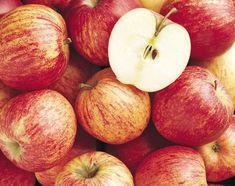
According to Pierre Nicolas Pérès, president of the Brazilian Apple Association (ABPM), in 2004, Brazil had its biggest harvest since apples have been grown - one million tonnes.
“The crop was of good quality although sizes were smaller than last year’s due to a mild winter. The winter conditions this year have been the best for the past 30 years, so we are anticipating excellent quality fruit for 2004/05. It is too early to predict volumes for the coming season, as blooming will only begin in mid September,” he says.
Exports for Brazilian apples in 2004 were over 150,000t with more than 90 per cent of export volumes sent to Europe, of which 11 per cent sent were sent to the UK - the number one export market. “The Asian market is also growing well for us and we believe this region offers great potential for export growth for Brazil. Sales have been initiated and we are building relationships,” says Pérès.
The main varieties grown in Brazil are Gala (50 per cent), Fuji (40 per cent) and 10 per cent other varieties including Golden. However, for export markets, production is concentrated on Gala (80 per cent) and Fuji (20 per cent). Production is concentrated in the three southern provinces of Brazil. In order of importance they are: Santa Catarina, in the region of Fraiburgo and Saint Joaquim, Rio Grande do Sul, in the areas of Vacaria and Caxias, and Paraná, in the Região de Palmas.
Pérès says that the UK market is very important for Brazilian producers. “Nowadays, the technology used in Brazil by the exporting producers is of the highest quality, facilitating the requirements to meet the high service demanded from markets such as the UK. The biggest challenge for the sector this year was shipping, as many shippers do not go directly to the UK, which complicates logistics and can make it difficult to fully meet the delivery terms desired,” he says.
Agrícola Fraiburgo, growers and exporters of apples, experienced significant increases in Brazilian apple exports, says Carla Castro Salomão, head of external markets. The company has invested substantially in research during the past 12 years to develop production standards, which have now become the benchmark for the apple industry across the country.
Agrícola Fraiburgo introduced the main commercial apple varieties to Brazil: Gala, Fuji and Belgolden. In 1963, Agrícola brought the Gala variety to Brazil and implemented the first trials near Fraiburgo city, in the southern region of the country. Today, Agrícola still innovates and places importance on the introduction of new technologies into its processes. In 1998, the company implemented a full traceability system, the first in Brazil, which identifies fruit throughout all phases it passes through, from the orchards to market.
Fraiburgo produces a wide range of varieties - Royal Gala, Gala Standard, Must Gala, Fuji Standard and Fuji Suprema. Production is based in four areas for Fraiburgo - three orchards in Santa Catarina and one in Rio Grande do Sul, depending which region offers the best climatic growing conditions for each variety.
Volumes for 2003 and 2004 were similar and 78 per cent were sent to Europe. “However,” says Salomão, “our season was delayed by two weeks and we had strong competition from the Chilean market, who anticipated our shipments and increased its exported volumes by as much as 100 per cent throughout February. Therefore, when our apples arrived the market was already oversupplied, which resulted in prices falling. The best prices for apples were in Brazil at the beginning of July but priority is given to exports.”
The apple season in Brazil runs from the first week of February, with shipments commencing in the second week of the month and continuing until the middle of July. This season, Agrícola Fraiburgo exported similar levels to previous seasons, however more volumes of Fuji apples were exported. Salomão says: “We export to 15 countries, but mainly to countries that prefer small calibres such as the UK, Ireland and Asia.
“Europe is a very important market for us as it takes 78 per cent of our volumes and in particular the UK, whose consumers prefer our varieties and sizes. The UK market appreciates the Brazilian apple because of its size, firmness, colour and quality. In addition, the apples have superior flavour because they are produced 900 metres above sea level.” Apples are sold under three trademarks: Fiesta for category I fruit and Festiva and Festival for category II and III fruit.
Salomão says that as a company Agricola Fraiburgo does not experience any specific difficulties in trading with the UK. “The only real difficulty placed on us by the UK market is the high standard of quality demanded by this mature market. We supply UK distributors chosen by the UK supermarkets, which provide a logistical service as well as a selection of other suppliers throughout Europe. This year, we held promotional campaigns for consumers in Germany to follow up last year’s fruit promotions in Scandinavia and the 2002 promotions in the UK and France.”
For the future, Salomão wants to maintain Agricola’s current client portfolio as well as increase its supply programmes in major importing countries. “Our projections for next season are for good volumes. After the high volumes produced in 2004, production levels are expected to be slightly down and harvesting is on course this winter. Looking at the apple volumes being harvested in Europe this season, volumes seem to be lower than last year. By February 2005, our volumes will be ready to fill the potential supply shortage.”



